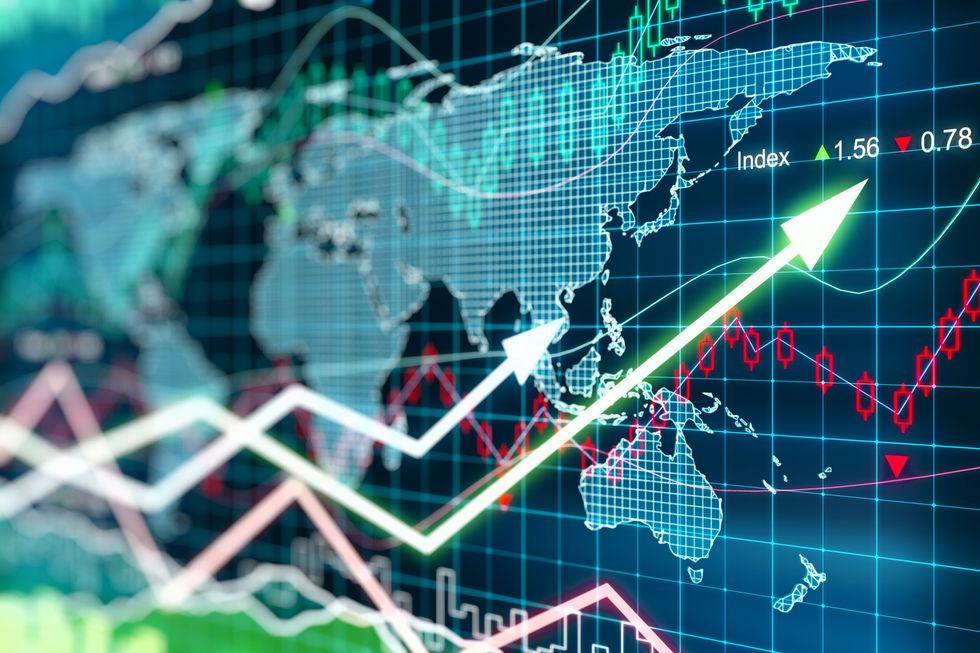At the end of 2018, things were not looking up for Apple. Underwhelming iPhone sales, no sign of AirPower (a wireless charging mat that apple promised to release in 2018), a rebuke from chip-maker Qualcomm and new iPads only showing up at the end of October, Apple stock was in critical condition. On January 3, 2019 Apple's shares hit a 6 month low at $142.19, sparking fears and concerns that their days as a leading company could be ending and quickly, at that.
But Apple had other plans. With an amazing earnings call - the second best in company history - Apple stock had a 7 percent climb, pulling it almost completely out of it's slump, and it's only gone up from there. At $167 as of January 31, 2019, the stock only appears to continue to climb and climb.
Before the earnings call, it seemed that Apple could be in trouble. A mix of lack of innovation in their latest iPhones, trouble with Qualcomm and tariff fears from the Trump administration from products made in China, could have spelled doom for the tech giant. But Apple's cult like following has taken hold again, saving it from a monstrous slide.
But will this following be enough to save Apple from a trade war? Obviously, when I say "save" it's subjective. No one, even in their wildest estimates, expects Apple to go the way of Sears, JC Penney or K-Mart and be in serious and legitimate trouble of going under for good. But that doesn't mean Apple is safe from taking a decent hit out of their multi-billion dollar monthly revenue.
Let's take a look at the first front of Apple's problems, iPhone sales. Apple is obviously selling iPhones still. From 2007, when the first one was released they have been a hot commodity. But the iPhone XS and XS Max did very little to wow consumers and the iPhone XR notably missed the mark with a watered down display and camera. With no true notable changes other than color (and size for the Max model), Apple announced that they would no longer share the number of iPhones sold to their shareholders. This move bolstered those who had been critical of the "lack of innovation" and weak sales reports leading up to the new phone releases.
Qualcomm has also been a thorn in Apple's side recently, and it looks as though they are there to stay. Qualcomm alleges that Apple has stolen some design features from them (noting an animation on newer iPhones in particular) and claims, with no evidence, that Apple is sharing trade secrets with rival chip maker Intel. Apple has been on the attack against Qualcomm as well, filing a BILLION dollar lawsuit in the United States, 145 million dollar in China and an additional lawsuit in the UK, with Qualcomm countersuits filed as well. These issues have not only hurt the perception of Apple to the world but has blocked the sales of iPhones in markets such as Germany and China. They have been able to find loopholes to continue to sell iPhones, but the loss of the Chinese market would absolutely devastate Apple, due to the fact that the Chinese population is well over a billion, which is well more than 3 times the size of the United States, with a growing middle class that is tech hungry and expanding faster than any other nation.
These two issues alone would leave Apple scrambling, but they are also dealing with a United States vs. China Trade War with no end in sight. Tariffs have been thrown back and forth, harming both economies but taking significant chunks out of China's rapid growth, slowing their markets and causing fears of consumers not wanting to spend as much money. This market loss is a double hit to Apple, as all iPhones (that are not sold in India) are made in Shenzhen, China by FoxConn, and as previously stated, China is a massive market of consumers. These tariffs could threaten the price of an iPhone, as a 20% tariff would raise the base price of an iPhone XS Max (the company's current flagship phone) from $1099.99 to $1319.99, a $220 increase that would come directly from the consumer. Even in a 2 year monthly payment plan, that is about $10 more a month, just for the added cost of the phone being made in China, if put in place. It would also essentially nullify the "budget" price of the iPhone XR, bringing it from a base price of $749 to $898.8, or just $101 less than the iPhone XS is now.
But Apple is smart. They know from experience how to fall and end up on top, better than ever. Knowing that the 2018 iPhone models would be more lackluster than blockbuster, Apple announced new Pro devices including new iPads and refreshes of the Mac Mini. These releases helped bolster the sales numbers for the holiday season of 2018 and drove the company to higher earnings than expected. This, along with other items that have leaked to be released soon (such as the AirPower charging mat and a second generation of the popular AirPod wireless headphones) have done nothing but help Apple's image of continuing to innovate and create.
It will be interesting in the next few months to see how Apple continues to quell fears. This is generally a quiet time of year for their product releases, as we generally don't see major product releases until Apple's World Wide Developers Conference (WWDC) in June. Of course, Apple could break the mold and have a keynote earlier, like was seen for the 2018 iPad and announce things like AirPower, AirPods 2 and potentially a new budget iPad, but we will wait and see. For now, Apple is playing it's cards perfectly and is in no rush to change.
















